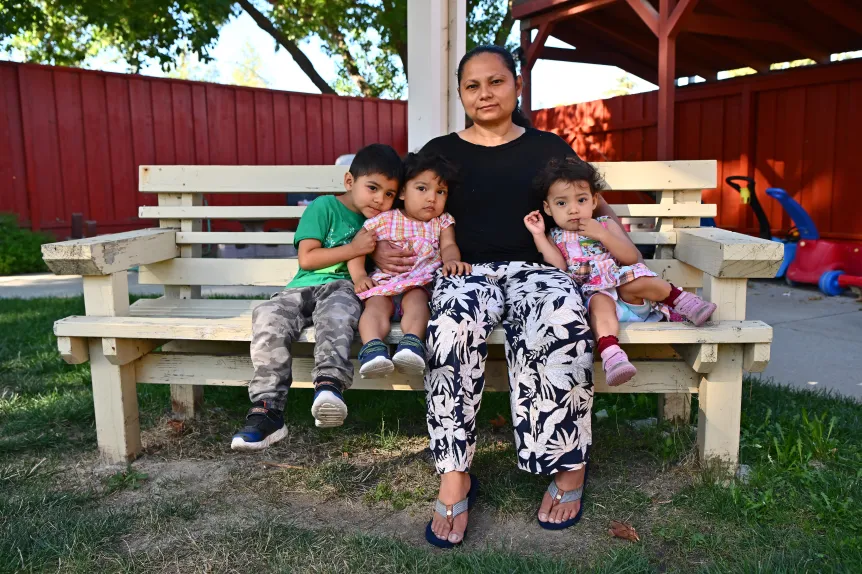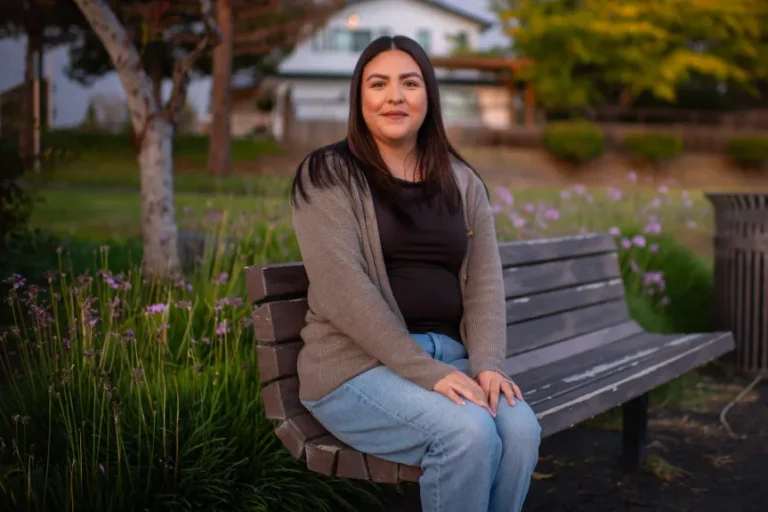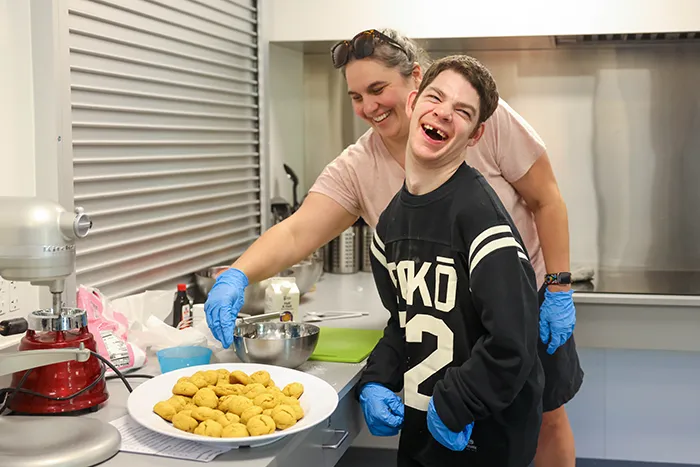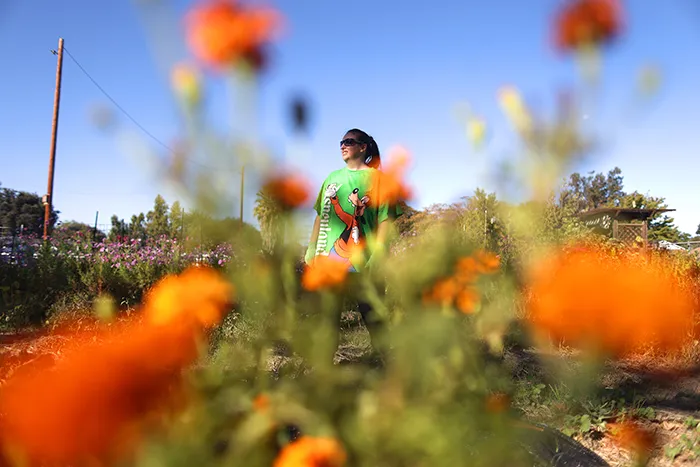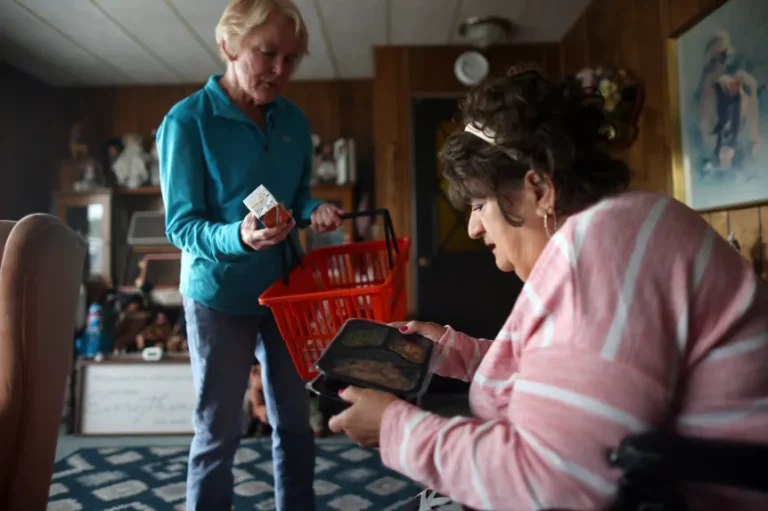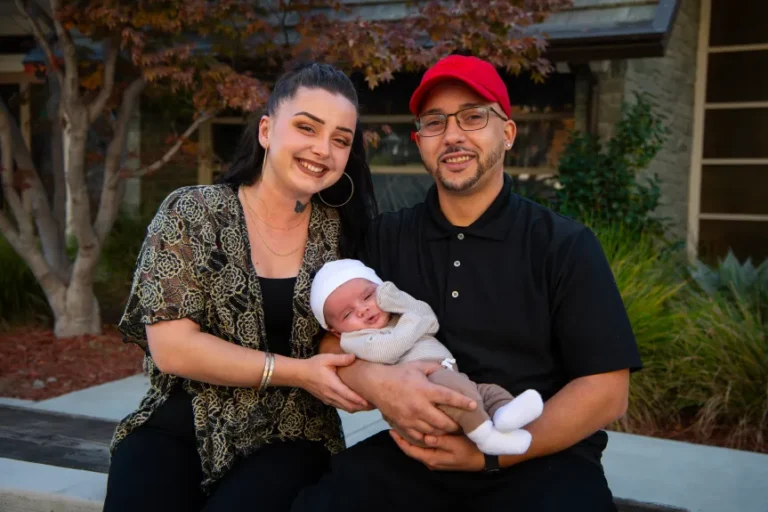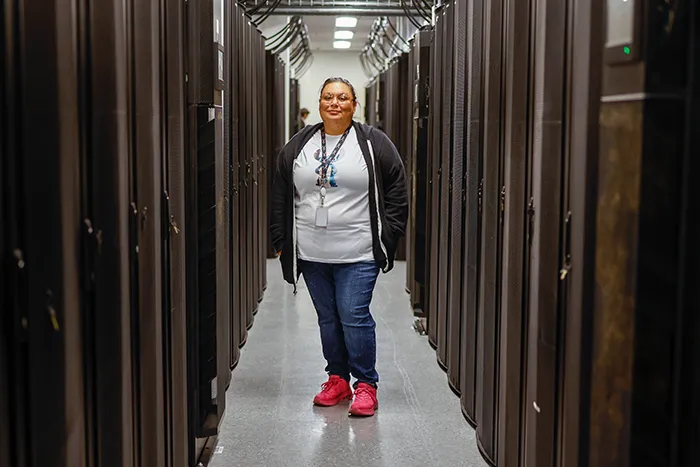Pretty much every waking moment of every day, Enis Martinez tends to the needs of her five children, including a 4-year-old son who’s on the autism spectrum and twin 23-month-old daughters.
Living in a two-bedroom Concord apartment, Martinez gets her children up in the morning, feeds them and ferries her two older children, 8 and 11, to and from school. While 4-year-old Jayden spends a couple hours each day at a special program for children with autism, Martinez still has Hannah and Alanah. The two toddlers constantly look to her for attention or if they need comfort when they’re frustrated or tired.
“They’re awake all day long, don’t take naps and only sleep I’m driving them in the car,” Martinez said, describing the plight of many stay-at-home parents who don’t get nap time breaks.
Martinez said she doesn’t get much help from her estranged husband, whom she’s divorcing due to his drinking. She also doesn’t have family nearby who can help. That means her days can be very, very long, with few opportunities to be alone or to just sit with her own thoughts. It’s no wonder, then, that Martinez looks forward to the break she gets several hours each week by leaving her children at the Bay Area Crisis Nursery.
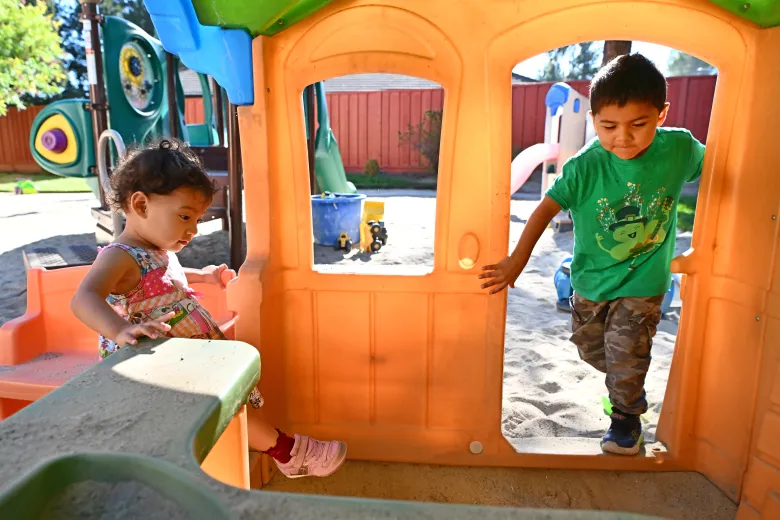
Located in Concord, the nursery has become an invaluable service for parents, whose worlds have fallen apart or who are overwhelmed, stressed out and in need of a safe, nurturing place to leave their children, whether for a few hours a week or for longer periods of time. The nursery is a free, 20-bed residential shelter for young children, ages newborn to 5 years old, serving about 250 children a year. It can take care of children for up to 30 days on an emergency basis, and is open 24 hours a day, 365 days a year.
Parents bring their children to the nursery for all kinds of reasons, including homelessness, job loss or mental health or medical emergencies, said executive director Tara Legaspi.
“It’s every single type of crisis that you can ever think of, right?” Legaspi said. “But basically the parent can’t take care of the child and has nobody else to go to.”
The nursery has helped families who have suddenly lost their homes in fires, or when parents have to stay with a critically ill child in the hospital. Some 96% of the parents are single mothers, some of whom are trying to leave abusive homes. The nursery also has looked after children whose mothers have to go into the hospital to give birth.
Since the nursery opened in 1981, it has cared for some 30,000 babies, toddlers and pre-schoolers. These children come from all over the Bay Area and even from the Central Valley because it is the only crisis nursery in the region and one of only four in California.
While at the nursery, the children stay in a home-like building that features large, light-filled playrooms filled with toys, books and games for play and for learning. The children can also run, climb, dig in sand or ride tricycles around a large outdoor playground. For nap time or at night, they can settle into cribs or beds in rooms decorated with colorful murals, depicting a forest scene, an underwater world, along with rainbows, friendly animals and a goofy octopus.
As Legaspi explains, the nursery’s mission involves so much more than just offering a place for parents to leave their children. Its overriding purpose is to prevent child abuse and neglect by giving parents the time and mental space to work through a crisis. On a practical level, parents need their children looked after while they go to job interviews, court dates, medical appointment or classes. The nursery also provides case management that links families to critical support services, including housing, health care, substance abuse programs, legal assistance, job training and subsidized childcare programs.
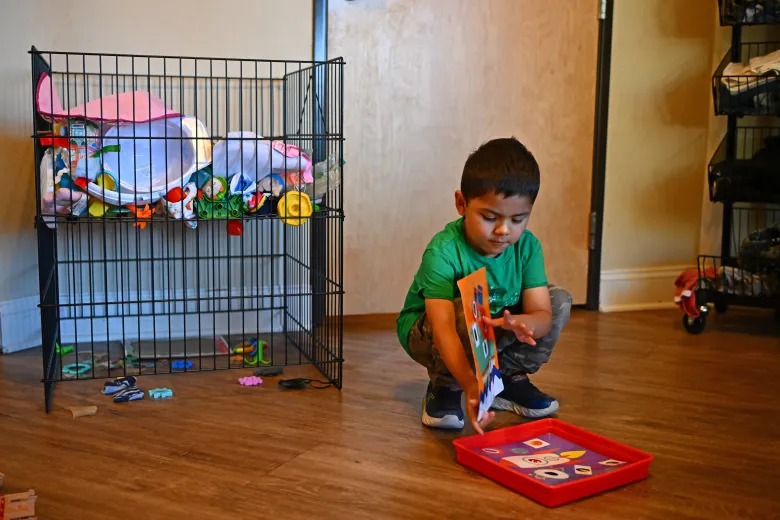
“We work to mitigate the crisis and then send the child back to a home that’s more stable,” Legaspi said.
Through the East Bay Times’ annual Share the Spirit campaign, which seeks to raise money for the most vulnerable in our communities, the nursery is hoping to raise $10,000 to provide 250 hours of childcare and emergency shelter services.
With the help of the nursery, Martinez gets time each week to enjoy the freedom of going to the grocery store alone, and she’s begun to take walks and is thinking of going to the gym. She found her way to the nursery in March because she had seasonal allergies that had become unbearable and needed childcare so she could get to doctors’ visits, said family resource navigator Laura Lopez. Like many parents who come to the nursery, Martinez began to open up about other issues – the stress from her divorce and how she was starting to feel depressed and hopeless.
Another concern was Jayden, who had been diagnosed with autism. Martinez’s case management plan included helping her to make sure he finished a behavioral therapy program so that he could start a special education preschool offered by the Mt. Diablo Unified School District. Jayden’s situation highlights another focus for nursery staff: monitoring children for signs of trauma or difficulty in reaching developmental milestones, then helping parents work with local agencies and school districts to enroll them in special programs if needed.
Once a family’s crisis has passed, the nursery tries to stay in contact with them. In 2020, the nursery began to offer emergency childcare for parents, including those who can’t find providers willing to accommodate their work schedules or kids with special needs. The nursery also encourages parents to check in by inviting them to pick up free diapers, formula, toiletries and food from its Food and Diaper Bank, which gave out 89,000 free diapers and 2,000 bags of food in 2023. Parents moreover can pick up free produce on Tuesdays or visit the lobby “boutique,” where they can find free children’s clothing, furniture, toys and baby supplies.
“Most people have experienced a crisis when they had no one to turn to,” Legaspi said. “We want them to know they can always turn to us.”
